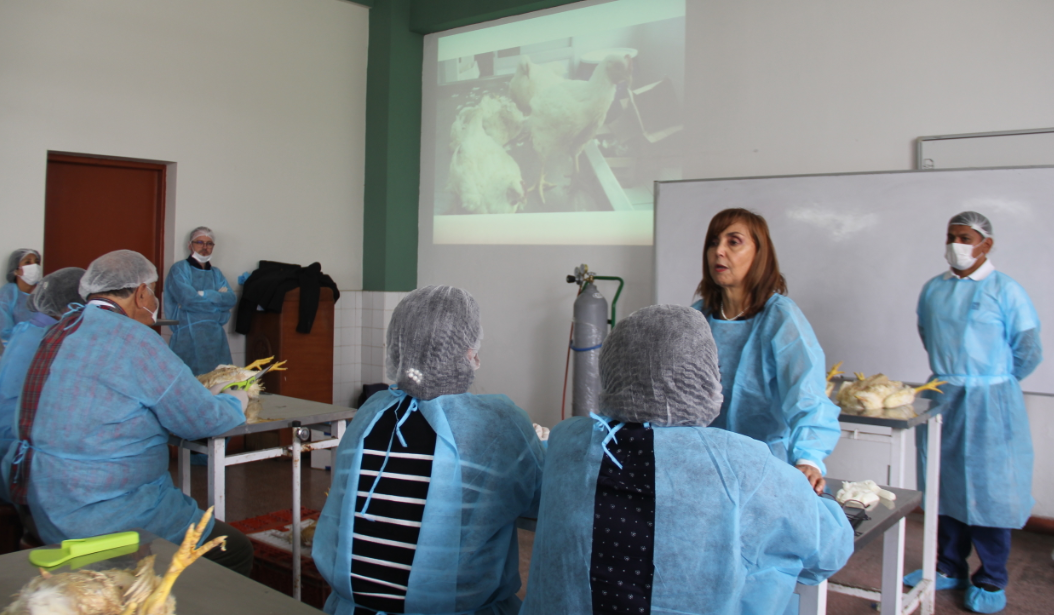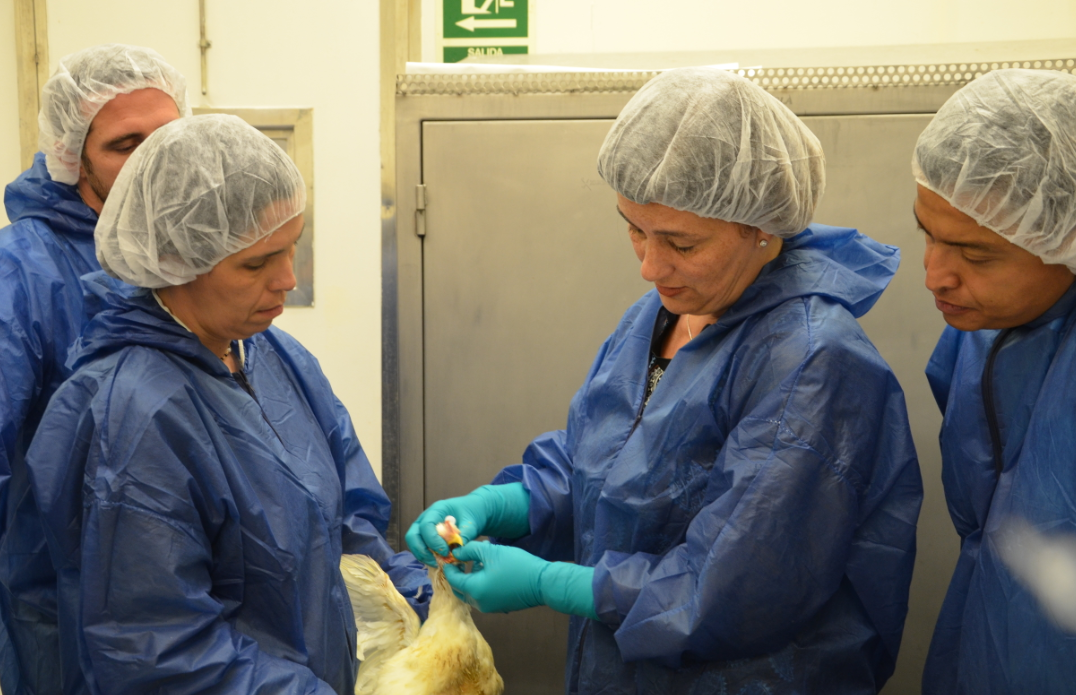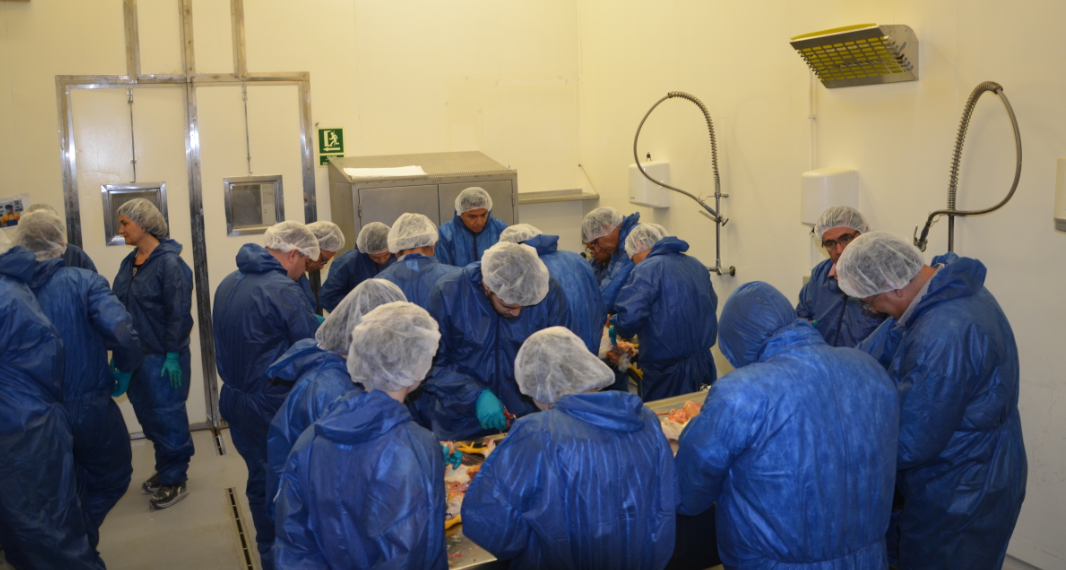



Hipra University, an insight into the therapeutic areas of interest in poultry farming
Veterinary practice in the poultry industry – probably more than for any other species - requires a revision of ideas and also updating of the interpretation of laboratory results and clinical diagnosis that can be made on the farm itself.In poultry production, the concept of the flock, rather than the individual, also requires the interpretation of the numbers from a statistical perspective. This involves training of the technician which goes beyond just identifying values that are above or below a standard.
In their everyday work, the frequent questions that face the technician are:
- Is what you see within the normal range?
- Are we suffering an outbreak of disease?
- Is this serological profile what we would expect from the vaccination programme that we have implemented?
With its interest in expanding knowledge of major therapeutic areas and providing useful tools for the professional, Hipra has in fact designed the Hipra University programme for its vaccine clients. The sole objective of this is the interpretation of lesions and laboratory results in the context of disease or in monitoring a vaccination programme.
The programmes offered by Hipra University are:
- Coccidiosis
- Pneumovirus
- Gumboro
- Newcastle.
Essentially, Hipra University, is a practical session with the strong involvement of the student, both in the necropsy room and in the study of serological results provided by the laboratory.
After a brief overview of the therapeutic area to orientate the student, there is immersion in the study of the lesions caused by the disease itself. This is especially relevant in the case of coccidiosis where the “lesion score” technique remains the key tool for diagnosis. One of the noteworthy aspects in Hipra is the capacity to create inocula that reproduce all grades of lesion caused by the most important Eimeria species. Although it is a regular practice, few laboratories are able to succeed in reproducing high grades of species such as E. brunetti, E. mitis or E. praecox, species which are less familiar to the veterinarian but are equally common in the field. This is usually a key point and is recognised as such by the participants.
Another important characteristic of the course is the participation of an external expert who joins the session and undoubtedly provides added value to it. Various key opinion leaders have participated in this way. Emilio del Cacho, Professor at the University of Zaragoza and Jean Michel Reperant from the French AFSA institute have taken part in various Hipra University Coccidiosis sessions and Mar Biarnés, Technical Director of CESAC (Centro de Sanidad Avicola de Catalunya y Aragón) is a regular contributor to the Hipra University Pneumovirus and Gumboro courses.
One of the most recent Hipra University sessions was held in Lima (Peru), at the University of San Marcos. It was the first course dedicated exclusively to Newcastle disease. The university placed its facilities at the disposal of the course for the performance of necropsies on birds and the identification of both the lesions specific to the disease and suitable tissues for sampling on FTA cards. This necropsy class was skilfully conducted by Professor Icochea.
Apart from learning about diagnosis, during these courses and especially during the Hipra University coccidiosis course, the concept of Smart Vaccination, devised by Hipra, is explained. During this process, an audit is carried out of the application of the live vaccine by “coarse spray” and a demonstration of the concept of traceability is provided by Hipraspray® —a device specifically designed for the administration of Evalon® and Hipracox®— and the tool for managing the vaccination process, Hipralink® vaccination, developed by Hipra to provide traceability services. Hipralink® vaccination allows seamless documentation of the work in the hatchery, which means that the technician in the field receives real time information on the vaccination process.
Finally, these courses receive certification. CPD Certification Service (https://cpduk.co.uk/) is an independent organisation established in the United Kingdom to support CPD (continuing professional development) policies across different professional sectors.
The organisation accredits companies wishing to provide a programme of continuing development.
Any programme or course that is developed must comply with the guidelines proposed by CPD as it is the organisation’s assessors who will check whether the teaching material or course objectives conform to a continuing development programme on the subject.
Ultimately, Hipra University is a course that is certified by an external company and its development objectives have been validated. This means that professionals in the sector will have their training officially recognised.
For over 4 years now, over 500 professionals from over 20 countries have been passing through the lecture rooms of Hipra University, attending different courses at the company’s headquarters in Girona (Spain) and in different countries. In this way, Hipra consolidates its commitment to prevention in poultry health.










.PNG)


